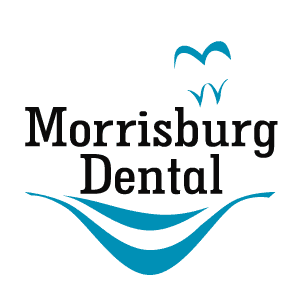A dental emergency happens when you need to see a dentist out of the routine check-ups for cleaning and x-rays every few months. It is a common experience, usually involving pain in the oral organs. Some oral discomfort can wait, while some occurrences may require immediate intervention by a specialist. Emergency dental services cater for trauma, loose or broken teeth, and broken or loose fillings.
Emergency dental care is vital for the following reasons:
- Preserving the teeth’s functionality
- Reducing severe pain which can hinder daily activities
- Treating infections before they develop to become life-threatening
How does an emergency look like?
It is essential to know when to seek emergency care. A prompt response can prevent potential oral infections. To point out an emergency, look out for the following:
- Severe pain
- Extensive bleeding from the mouth
- Relentless fever or a foul odor coming from your mouth
- Loss of a tooth that can be fixed by immediate treatment
- Substantial swelling and knotting of the gums or face
- A loose adult tooth. Adults should not have a shaking tooth even when it is painless.
- Abscess or an infection
- A painful fractured tooth with debris embedded in the gum
If any of these are present, you should seek out a professional emergency dentist near you. Dental problems like this are life threatening. Here are some tips to take care of common dental emergencies before contacting the dentist:
- A painful broken or fractured tooth can be rinsed with warm water. Place a cold pad on the outside of the swollen part to reduce it.
- Knocked-out teeth can be reset. Please put it in milk or between your cheek and gums after rinsing off the dirt. Avoid touching the root and handle it by the crown. You can attempt to insert it back in the groove and control the bleeding with a clean, cold, and wet cloth.
- Cuts or bites on the lips or tongue can be gently cleaned with water. Use a cold compress to control the bleed and see a specialist for stitches.
Other conditions cannot be controlled at home. They include:
- Continuous pain accompanied by bleeding gums signifies periodontal disease. It will need treatment to ensure the tissues and bone are healthy.
- An infection manifesting persistent jawline pain, abscessed teeth, fever, bitter taste, bumps on the gums, and inflammation. This requires a dentist to prescribe antibiotics, drain the pus, and perform a root canal. An abscess can prompt infections in other parts of the body. You can alleviate pain by rinsing your mouth with salty water many times. In addition, the salty water will pull the pus to the surface for easier drainage.
What Is Not Considered an Emergency?
Mild problems can wait until your primary dentist can see you after a few days. These are not critical and will not cause further damage if you are careful. Here are some examples:
- A broken or chipped tooth that is not painful.
- Faint toothache that doesn’t have symptoms of an infection like lumps on the gums.
- Lost crowns or filling. You could temporarily manage the problem by reattaching the crown using denture adhesive or cement.
Can I Prevent Emergencies?
Yes, by practicing proper dental hygiene and having frequent oral examinations by your dentist. Routine visits to the dentist will involve looking for fillings and crowns that are not firm. They will also check for decay, infection, and gum illness symptoms and form appropriate treatment plans. Practice the following to reduce potential emergencies:
- Adhering to the dentists’ instructions in ace you have a tooth extracted, thus preventing infections and dry socket.
- Wearing a mouth guard while playing sports
- Brushing twice a day
- Flossing
- Taking a balanced diet
- Avoid using your teeth to open the wrapping, especially when you have dental bridges, composite fillings, or veneers.
- Rinsing your mouth with an antibacterial mouth wash
- Curbing chewing candy or ice
Emergency dentistry is an ingenious method to deal with tooth-related problems that cannot be handled by traditional emergency rooms. If you need an emergency dental clinic in Morrisburg, ON, consider Morrisburg Dental. We offer immediate response to emergencies even after office hours. Our clinic guarantees efficient emergency dentistry in Morrisburg, ON.


 What You Should Ask Your Dentist When Getting Dental Crowns
What You Should Ask Your Dentist When Getting Dental Crowns